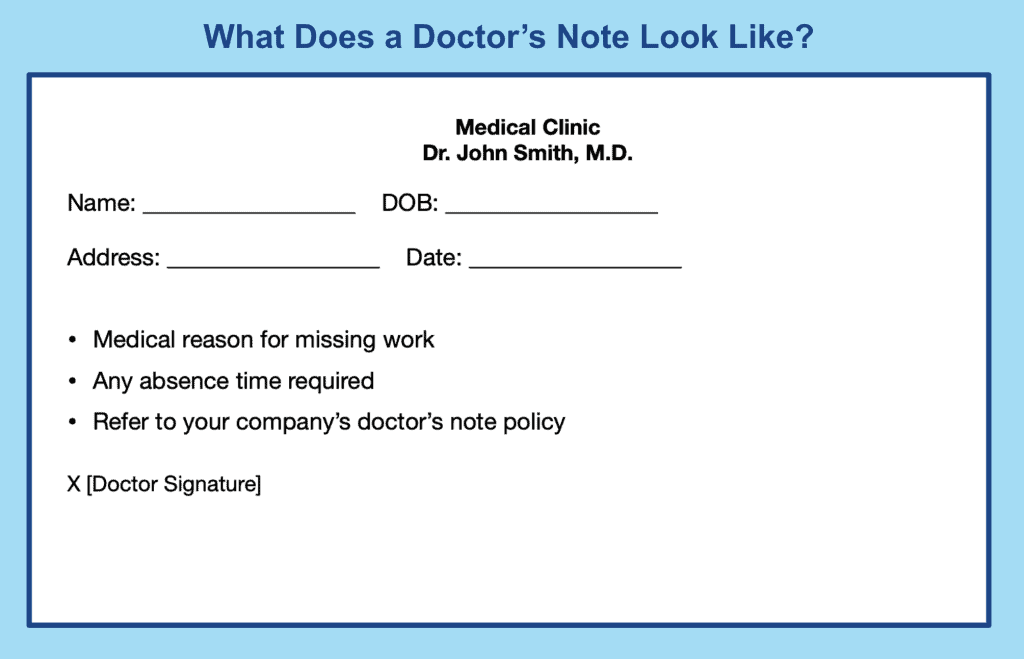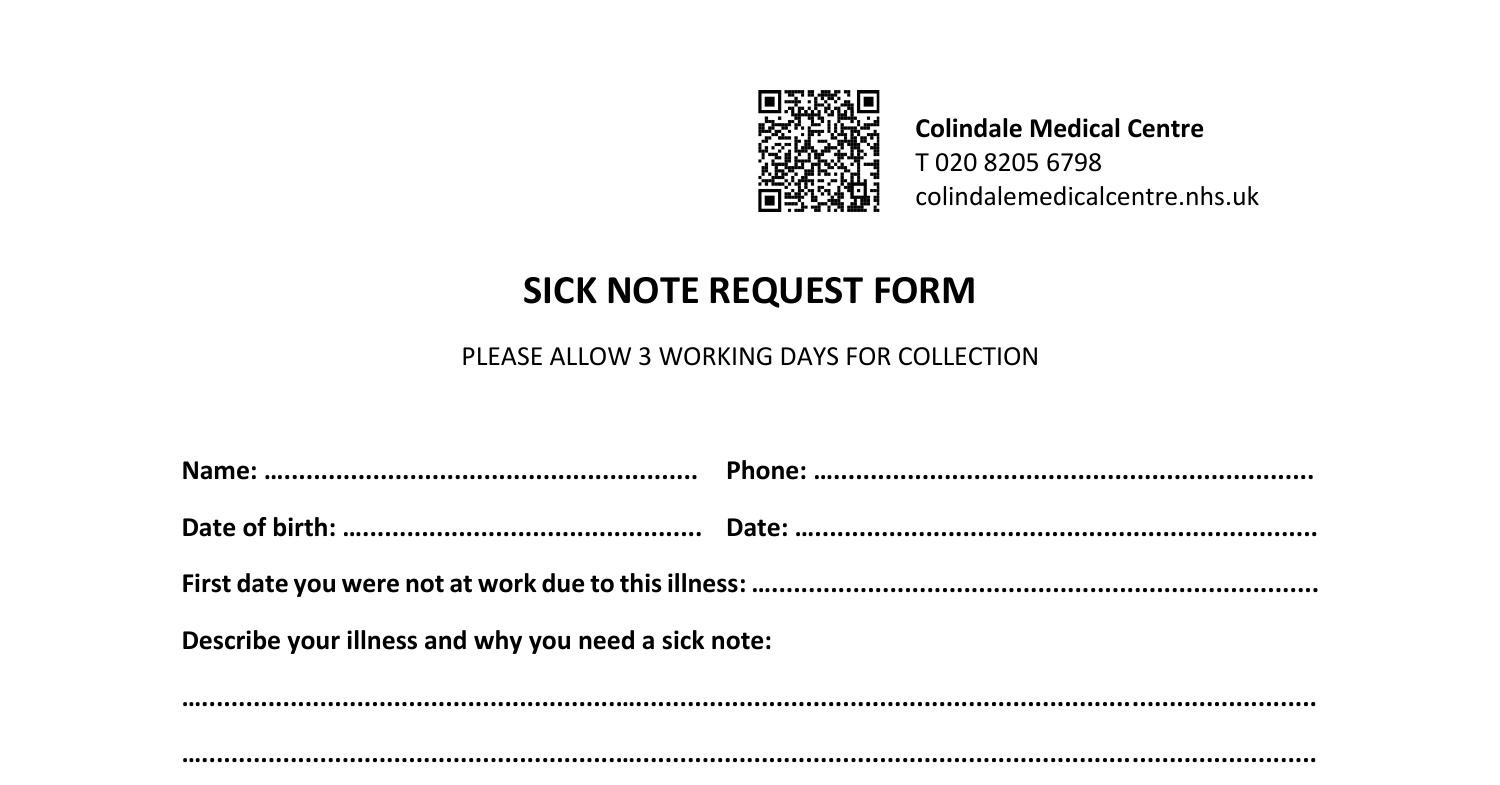Will a Doctor Give Mental Health Sick Note for Work?
Will a doctor give mental health sick note for work? This question highlights the intersection of healthcare, employment, and mental wellbeing. Navigating the complexities of obtaining documentation for work absences due to mental health challenges can be tricky, involving legal considerations, employer expectations, and individual patient rights. This exploration delves into the process, exploring what information is typically included in such notes, the types of documentation available, and the responsibilities of both doctors and employers.
Understanding the nuances of this process is crucial for both employees seeking time off for mental health reasons and employers striving to create supportive work environments. We’ll examine various mental health conditions, the severity levels affecting documentation, and responsible communication between doctors, patients, and employers. We’ll also look at alternative approaches to managing mental health at work and resources available to employees.
Ultimately, the goal is to shed light on this often-sensitive subject, providing clarity and promoting a more understanding and supportive approach to mental health in the workplace.
Doctor’s Role in Providing Mental Health Documentation for Work
Doctors play a crucial role in supporting employees experiencing mental health challenges by providing appropriate documentation for work absences. This involves navigating legal and ethical considerations, understanding patient needs, and communicating effectively with employers.
Legal and Ethical Considerations in Issuing Mental Health Documentation
Doctors must adhere to patient confidentiality laws (like HIPAA in the US) when providing documentation. They also need to balance the patient’s need for workplace accommodation with the employer’s legitimate need for information regarding work capacity. Disclosing too much specific diagnostic information is ethically problematic and potentially illegal; providing too little may not adequately support the employee’s need for leave.
The Process of Obtaining Mental Health Documentation
Typically, a patient will discuss their mental health condition and its impact on their ability to work with their doctor. The doctor will conduct a thorough assessment, potentially including reviewing medical history and conducting relevant examinations. Based on this assessment, the doctor will determine the appropriate type of documentation and its content.
Types of Documentation for Work Absences
Doctors may provide various types of documentation, each serving a different purpose. A simple “sick note” confirms an illness-related absence, while a “fitness-for-duty certificate” assesses the employee’s ability to perform specific job tasks. More detailed reports may be necessary in complex cases, potentially involving input from other healthcare professionals.
Information Included in Mental Health-Related Work Absence Notes
Documentation usually includes the dates of the absence, a statement confirming the employee’s inability to work due to a mental health condition, and a recommendation for return-to-work (with or without restrictions, depending on the severity and nature of the condition). Specific diagnoses are generally avoided to protect patient privacy.
Types of Mental Health Conditions and Documentation
Various mental health conditions can necessitate work absences, ranging in severity and requiring different levels of documentation. The doctor’s role is to accurately reflect the impact of the condition on the individual’s work capacity while maintaining patient confidentiality.
Common Mental Health Conditions Affecting Work
- Depression
- Anxiety disorders (Generalized Anxiety Disorder, Panic Disorder, Social Anxiety Disorder)
- Post-traumatic stress disorder (PTSD)
- Bipolar disorder
- Schizophrenia
Severity and Documentation
The severity of a condition influences the type and detail of the documentation provided. A mild case of anxiety might only require a brief sick note, while a severe depressive episode may necessitate a more detailed report and potentially a longer absence. The doctor assesses the individual’s functional impairment and the impact on their ability to perform their job.
Managing mental health in nursing is crucial, and thankfully, resources exist to help. For nurse managers, the workplace mental health manual for nurse managers doi 10.1891 9780826137463.0007 offers practical guidance. Understanding diagnostic criteria is also key, which is why familiarity with the world health organization icd-10 manual of mental disorders dsm-iv is beneficial for accurate assessment and appropriate care planning.
These resources combined provide a strong foundation for supporting the well-being of both nurses and patients.
Examples of Documentation Decisions
A doctor might provide a note for a severe panic attack preventing work attendance, but may not provide one for mild anxiety that doesn’t significantly impair work performance. The decision always prioritizes the patient’s well-being and the legal and ethical obligations of the doctor.
Communicating Severity Without Diagnoses
Doctors can communicate the severity of a condition using descriptive terms such as “significantly impaired ability to concentrate,” “inability to manage work-related stress,” or “requires time off for recovery and treatment.” This allows for clear communication without disclosing protected health information.
Employer’s Expectations and Responsibilities
Employers have legal and ethical responsibilities regarding employee mental health. Understanding these responsibilities is crucial for fostering a supportive and inclusive workplace.
Legal Responsibilities of Employers
Employers are legally obligated to provide reasonable accommodations for employees with disabilities, including mental health conditions, under laws such as the Americans with Disabilities Act (ADA) in the US. This may involve modifying work schedules, duties, or providing other support.
Managing stress and burnout is crucial in the demanding nursing profession. For nurse managers, a helpful resource is the workplace mental health manual for nurse managers doi 10.1891 9780826137463.0007 , offering practical strategies for supporting staff well-being. Understanding diagnostic criteria is also key, and the world health organization icd-10 manual of mental disorders dsm-iv provides a comprehensive guide for accurate assessment and treatment planning.
Properly addressing mental health concerns within the workplace ultimately leads to a healthier and more productive team.
Employer Processes for Mental Health Documentation
Upon receiving a mental health-related work absence note, employers typically review the documentation and assess the employee’s capacity to return to work. They may contact the employee to discuss their needs and explore possible accommodations. The employer’s response should always be sensitive and confidential.
Creating a Supportive Workplace Environment
Employers can foster a supportive environment by implementing mental health awareness programs, providing access to employee assistance programs (EAPs), and promoting open communication about mental health concerns. This creates a culture where employees feel comfortable seeking help without fear of judgment or discrimination.
Appropriate and Inappropriate Employer Responses
Appropriate responses include offering support, exploring reasonable accommodations, and maintaining confidentiality. Inappropriate responses include questioning the diagnosis, pressuring the employee to return to work prematurely, or discriminating against the employee based on their mental health condition.
Patient’s Rights and Responsibilities

Employees have rights regarding their mental health information, and they also have responsibilities in managing their condition and communicating with their doctor and employer.
Employee Rights Regarding Confidentiality
Employees have a right to confidentiality regarding their mental health information. Employers cannot demand specific diagnostic details and must only receive information necessary for making reasonable accommodation decisions.
Responsibilities in Communicating with Doctor and Employer
Employees should be honest with their doctor about their condition and its impact on their work. They should also communicate clearly with their employer about their needs and limitations, and work collaboratively to find solutions.
Step-by-Step Guide for Obtaining Documentation
- Schedule an appointment with your doctor to discuss your mental health condition and its impact on your work.
- Provide your doctor with relevant information about your job duties and work environment.
- Discuss the type of documentation you need (e.g., sick note, fitness-for-duty certificate).
- Follow your doctor’s recommendations regarding treatment and recovery.
- Submit the documentation to your employer according to their policies.
Advocating for Your Needs
Employees should advocate for their needs by clearly communicating their limitations and requesting reasonable accommodations. They can also seek support from their doctor, HR department, or employee assistance program.
Alternative Approaches to Managing Mental Health at Work: Will A Doctor Give Mental Health Sick Note For Work
Many strategies can help manage mental health challenges without requiring a work absence. These strategies focus on proactive self-care and open communication with employers.
Strategies for Managing Mental Health Without Absence
- Stress management techniques (e.g., mindfulness, exercise, relaxation techniques)
- Time management and prioritization skills
- Seeking support from friends, family, or a therapist
- Utilizing employee assistance programs (EAPs)
Resources and Support Systems
Many resources are available, including EAPs, mental health helplines, online support groups, and mental health professionals. Employers can play a vital role in providing access to these resources.
Benefits of Open Communication
Open communication between employees and employers fosters trust and understanding. Employees feel more comfortable seeking help, and employers can provide appropriate support and accommodations.
Proactive Mental Wellbeing Plan, Will a doctor give mental health sick note for work
A proactive plan might include regular self-assessment of mental health, utilizing stress management techniques, and scheduling regular check-ins with a healthcare professional. This preventative approach can reduce the likelihood of future absences.
International Perspectives on Mental Health and Workplace Documentation

Approaches to mental health documentation and workplace policies vary significantly across countries, reflecting differences in legal frameworks, cultural norms, and healthcare systems.
Comparing Approaches Across Countries
Some countries have robust legal frameworks protecting employee mental health and mandating reasonable accommodations. Others may have less developed systems or different cultural attitudes towards mental health in the workplace. The availability and accessibility of mental health services also vary considerably.
Differences in Legal Frameworks and Cultural Norms
For example, the level of detail required in documentation, the extent of employer responsibility for accommodation, and the degree of confidentiality afforded to employees can differ greatly across jurisdictions. Cultural norms around mental health also influence the openness and acceptance of mental health issues in the workplace.
Best Practices from Around the World
Countries with strong mental health support systems often prioritize preventative measures, provide access to comprehensive mental health services, and encourage open communication about mental health in the workplace. These practices can serve as examples for other nations.
Challenges and Opportunities for Global Consistency
Creating globally consistent standards faces challenges related to differing legal systems, cultural contexts, and healthcare infrastructure. However, there is an opportunity to learn from best practices and develop guidelines that promote employee well-being and reduce stigma around mental health globally.
Securing a mental health-related sick note for work involves a careful consideration of legal and ethical responsibilities, patient rights, and employer expectations. Open communication between the employee, their doctor, and their employer is paramount. While a sick note can provide necessary time off for recovery, proactive mental health management and available resources offer alternative strategies to prevent future absences.
Remember, prioritizing mental wellbeing is crucial, and seeking help is a sign of strength, not weakness. Understanding the process and available support systems can significantly improve the experience for individuals facing mental health challenges in the workplace.
Share this content:
